8 Ways to Speed Up Your PC (Without Upgrading!)
Is Your PC Feeling Sluggish? 8 Ways to Speed It Up (Without Breaking the Bank!)
We've all been there. That once-speedy PC now takes ages to boot up, apps crawl, and you find yourself drumming your fingers impatiently waiting for the simplest tasks to complete. Before you resign yourself to shelling out for a brand new machine, hold on! Often, a few simple tweaks can breathe new life into your aging computer.
Visit our YouTube channel for more tips, updates, & reviews: https://www.youtube.com/@SmartTechShopping
Why PCs Slow Down
Over time, PCs tend to accumulate digital clutter like dust bunnies under your bed. Outdated software, unnecessary files, and resource-hogging programs can all contribute to a sluggish performance. The good news is that many of these issues can be resolved with some free and easy maintenance.

Want to get Laptop with affordable prices: Shop on Amazon with us
8 Tips to Revitalize Your PC
1. Clean Up Your PC
Think of this as digital decluttering.
- Delete Unnecessary Files: Use built-in tools like Windows Disk Cleanup or macOS Storage Management to identify and remove temporary files, system junk, and old downloads. For a more thorough clean, consider third-party options like CCleaner, but be mindful of its optional features and potential bloatware.
- Clear Your Downloads Folder: This is a notorious hotspot for forgotten files. Regularly sort through it and delete what you no longer need.
- Empty the Recycle Bin: Don't forget to take out the digital trash! Those deleted files are still taking up space until you empty the bin.
2. Manage Startup Programs
- Disable Unnecessary Startup Apps: Many programs automatically launch when you start your computer, consuming valuable resources. In Windows, use the Task Manager (Ctrl+Shift+Esc) to manage startup programs. On macOS, head to System Preferences > Users & Groups > Login Items.
- Impact: Disabling unnecessary startup apps leads to faster boot times and frees up system resources for better performance.
3. Optimize Your Hard Drive
- Defragment and Optimize Drives (Windows): Over time, files on your hard drive can become fragmented, slowing down access times. Windows has a built-in tool to defragment your drives. Just search for "Defragment and Optimize Drives" in the Start Menu. Note: SSDs don't need defragmentation.
- Clean Your Desktop: Believe it or not, too many icons on your desktop can also impact performance. Organize your files into folders to keep things tidy.
🌐 More Deals: [Visit Our Website](https://smarttechshopping.com/)
4. Update and Optimize Software
- Check for System Updates: Keeping your operating system (Windows or macOS) updated is crucial for optimal performance and security.
- Uninstall Unused Programs: Go through your installed programs and uninstall anything you don't use or need. This removes bloatware and frees up storage space.
- Optimize Browser Performance: Clear your browser cache and history regularly. Consider using lightweight browsers or extensions if your current browser feels slow.
5. Check for Malware and Viruses
- Run a Full System Scan: Use Windows Security, macOS's built-in malware protection, or a reputable free antivirus tool like Malwarebytes to scan your system for malicious software.
- Signs of Malware: Be vigilant for signs of malware, such as slow performance, overheating, unusual pop-ups, or excessive ads.
6. Adjust System Settings
- Adjust Power Settings: Switch to "High Performance" mode in your Windows power settings or similar options on macOS to prioritize performance over battery life.
- Reduce Visual Effects: Turning off unnecessary animations and visual effects can free up system resources.
7. Free Up RAM and CPU Usage
- Close Background Processes: Use Task Manager (Windows) or Activity Monitor (macOS) to monitor which programs are using the most RAM and CPU. Close any unnecessary or resource-heavy tasks.
- Disable Browser Extensions: Some browser extensions can consume significant resources. Disable or remove any you don't regularly use.
8. Back Up and Reset If Needed
- Create a Backup: Before making major changes or attempting a reset, always back up your important data.
- Perform a Factory Reset: If all else fails, a factory reset can restore your PC to its original state. This should be considered a last resort, as it will erase all your data.
Conclusion
Just like a car needs regular maintenance, your PC also benefits from a little TLC. By implementing these tips regularly, you can keep your computer running smoothly and avoid the frustration of slowdowns.
Do you have any other PC optimization tips to share? Let us know in the comments below!




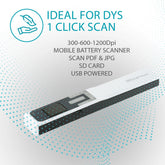









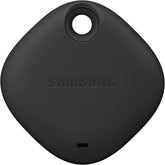
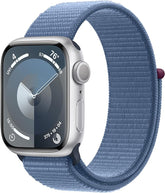


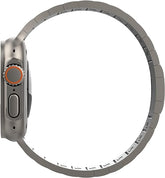


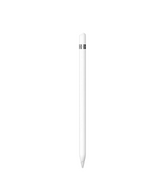

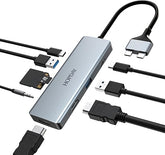
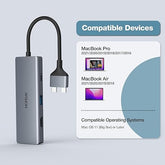

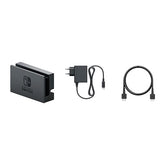






![["B0B1L87TMY"]](http://smarttechshopping.com/cdn/shop/products/7110BNil-dL._AC_SL1500_165x.jpg?v=1695449139)
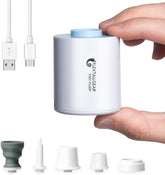



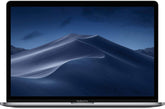
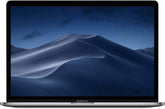

Leave a comment
Please note, comments need to be approved before they are published.